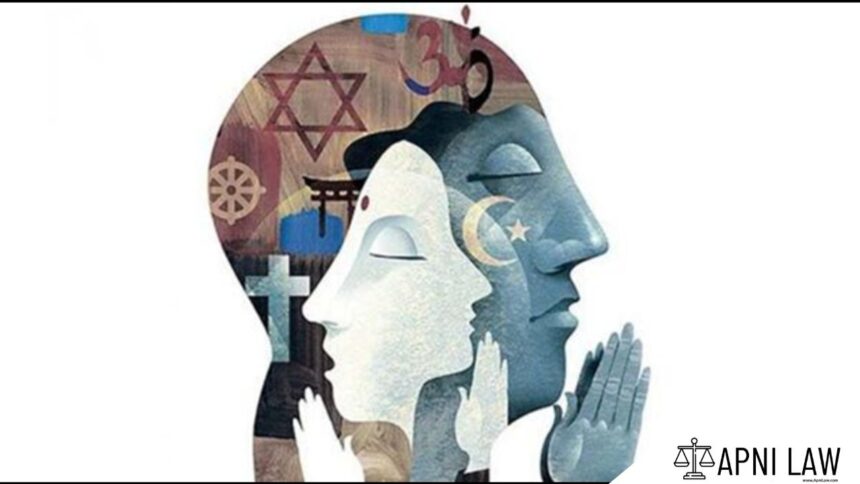Introduction
Religion is something personal, but religious threats have been used as blackmail in recent times. Blackmail associated with religious beliefs or identity has been the order of the day, particularly via social media platforms and interpersonal interactions. Whenever you receive a threat that they will hurt your religious feelings or publicize your beliefs if you do not do what they want you to, it amounts to blackmail. The Bharatiya Nyaya Sanhita (BNS) treats such acts under Section 354, which is for offenses relating to outraging religious feelings and wrongful intimidation. But will this section save you if you are being blackmailed based on religion? Let’s find out what the law prescribes.
What Does BNS 354 Cover?
Section 354 of the BNS treats acts that intentionally insult or offend religious feelings with ill will. If someone threatens to defame your faith or intimidate you by abusing your religion, it comes under this section. The law understands that religion is a delicate topic and misusing it for intimidation or extortion can result in great emotional trauma. For instance, if a person says, “If you don’t pay me, I will upload content that offends your religion,” not only is that blackmail, but it is criminal under BNS 354. The law criminalizes such actions because they disrupt peace, capitalize on faith, and infringe on personal dignity.
Why Religious Blackmail is Treated Seriously
Religious blackmail is perilous because it can cause fear, social isolation, and emotional trauma. In a multicultural nation like India, religion is a critical aspect of identity. Threats to faith can thus become communal tensions in such a nation. The government added Section 354 BNS to make it so that people are comfortable practicing their religion without fear of force. The law does not view threats to faith as mere personal harm but as acts that disrupt public peace. Thus, perpetrators can be dealt with firmly legally. This is particularly relevant in situations where blackmailers have used social media to instill fear, since the internet serves to project such threats to a wider audience.
Punishment Under Section 354 BNS
The punishment under BNS 354 is based on the gravity of the offense. Where the blackmail entails threat to insult religion and incitement to hatred, imprisonment and fine may be imposed. In serious cases, the punishment can be increased to achieve a strong deterrent effect. The law seeks to safeguard people from psychological coercion and to sustain public peace. If a person employs religious feeling to extract money, build pressure, or muzzle you, the act is criminal intimidation according to law. Courts view such cases seriously as they seek a balance between both extortion and public harm.
How to React if You’re Blackmailed on the Basis of Religion
Do not panic or give in to the blackmail if you are blackmailed with religious threats. Instead, collect evidence like text messages, audio recordings, or social media screenshots. Register a complaint at the nearest police station or via the Cybercrime Reporting Portal. Refer to Section 354 BNS in your complaint so the appropriate legal provision is invoked. It is also a good idea to take advice from a legal expert. Prompt action can avoid further harassment and prevent the perpetrator from attacking others. Knowledge of the law is your greatest shield against such intimidation.
Conclusion
Religious blackmail is not only immoral, it is criminal under BNS Section 354. The statute gives the power to act to victims and guards against emotional and social injury brought about by such threats. Freedom of religion is a human right, and nobody has a right to exploit it to benefit himself/herself. By reporting such crimes and employing the shield of the law, you can hold blackmailers accountable. In a society where religious faith is respected, legal actions such as Section 354 protect dignity, harmony, and justice for everyone.









